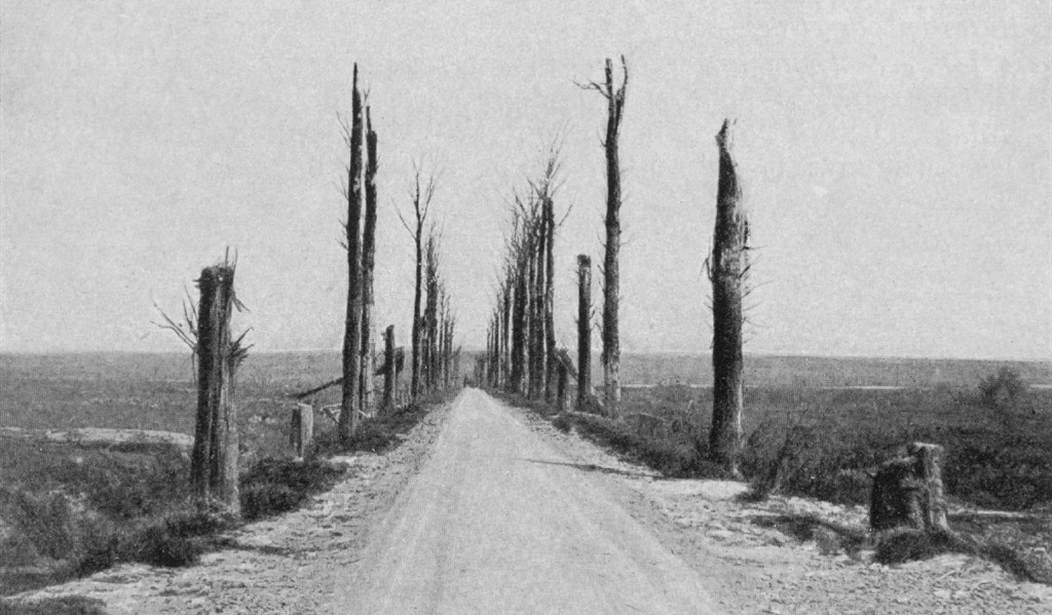NEWBURY, England -- World War I began as most wars do with patriotic fervor and predictions of a quick end. It lasted four years.
While the match igniting the "war to end all wars" was lit by the assassination of Austria's Archduke Ferdinand on June 28, 1914, formal declarations of war occurred 100 years ago on July 28 (Austria declares war on Serbia) and Aug. 1 (Germany declares war on Russia, and Russia on Germany). Aug. 1, 1914 will be commemorated Sunday at a charity event to benefit current British war veterans at Highclere Castle, the site of the PBS series "Downton Abbey."
The observance will begin with a worship service led by the former Archbishop of Canterbury, Lord George Carey, followed by period music, games, speeches, and other events one might find at an American state fair.
It is a truism that wars are started by old men who send young men (and now women) to die. What was then called The Great War turned out to be "great," but only in its carnage. The figures, though still in dispute, are staggering even to this day. According to figures compiled by the U.S. Justice Department, there were more than 37 million casualties, including dead, wounded and missing. Russia and Germany lost the most (1.7 million and 1.73 million respectively), followed by Austria-Hungary (1.2 million), France (1.35 million) and Britain (908,371). The U.S., because of its late entry into the conflict, suffered 116,516 dead, 204,002 wounded.
Contributing to the slaughter was Germany's use of modern weaponry, including machine guns. Other European nations employed weapons and tactics used in previous wars. Inept commanders, of whom there were many, were also to blame. Rain, mud and cold, which incapacitated men and machines, along with inferior and sometimes tardy medical care, contributed to the death toll.
Of all the wars, this one may have been the least predictable. As historian Max Hastings writes in "Catastrophe: Europe Goes to War in 1914":
"The war had not been precipitated by popular nationalistic fervor, but by the decisions of tiny groups of individuals in seven governments." He quotes the Fabian Society's Beatrice Webb, who was offended by what she called "the disgusting misuse of religion" to stimulate patriotism. Sound familiar?
Recommended
Hastings writes that this war might have offered lessons for the wars and conflicts that followed: "So extravagant was the sentimentality with which the war was promoted in its early months that in due time, as its human cost soared, a lasting revulsion emerged among some of the audience, who felt that they had been duped. The genuine merits of the allied cause became profoundly tarnished by the baroque language and spurious religiosity with which it was marketed, especially in the eyes of the generation that would do most of the dying that made victory belatedly possible."
The British Archives and other sources are now publishing letters sent by soldiers to their loved ones. They are poignant and typical of what you might expect from men unsure of their futures. The most heart-wrenching are from soldiers who promised wives, sweethearts and parents they would be home soon, only to be killed days or weeks later.
Max Hastings notes that world leaders in those days were no more ignorant, nor intelligent, than those in this century, but he calls them "deniers, who preferred to persist with supremely dangerous policies and strategies rather than accept the consequences of admitting the prospective implausibility, and retrospective failure, of these."
Hastings contends the major cause of the war was Germany's decision to support Austria's invasion of Serbia, "believing that the Central Powers could win any wider conflict such action might unleash."
Was the war worth it? Yes, in one sense, because if Germany had won, it would have dictated peace terms threatening European freedom, freedom that would be threatened again just two decades after the Treaty of Versailles in a second world war.
A satirical song that challenged the jingoism of the time was, "Oh! It's a Lovely War." As the lyrics convey, it was anything but lovely for the millions who fought in it and for those they left behind to mourn.
























Join the conversation as a VIP Member